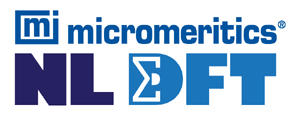Apr 9 2010
In April 1993, Micromeritics introduced DFT V1.00, the first commercially available software package offering a practical method to routinely analyze experimental adsorption isotherms using methods based on modern theoretical physical chemistry.
It was the culmination of an investigation by Micromeritics' scientists J.P. Olivier and W.B. Conklin into a method by which the power of density functional theory (DFT) could be utilized by any researcher or laboratory technician with a desktop computer.

Today, Micromeritics continues work in the area of isotherm data analysis with the introduction of a new series of NLDFT models for characterizing porous carbons. These new models are based on recent work by J. Jagiello and J.P. Olivier. The set also includes the new 2-D models, first described in the November 2009 edition of the Journal of Physical Chemistry. Another set of recently introduced models provide researchers with additional options for characterizing their carbon materials at either 77K with argon or 87K with nitrogen.
The Micromeritics DFT/NLDFT model set is the largest library commercially available and continues the Micromeritics trend of innovation and excellence in the area of gas adsorption technologies. All new NLDFT models are available at no cost to users of Micromeritics' DataMaster, ASAP® 2020, ASAP® 2420, TriStar® II 3020, and Gemini® VII 2390.